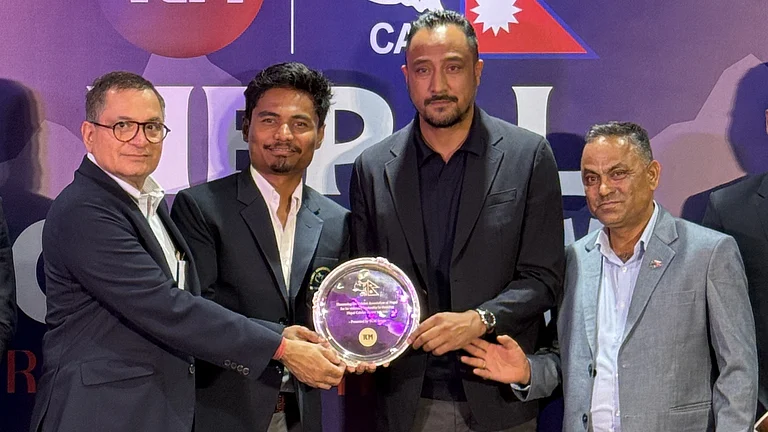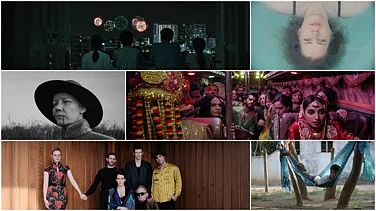Satellite television was barely a year or so old when Antakshari broke into the scene. Since then, Indian TV has witnessed many changes. Frankly, I do not watch movies and television or, for that matter, even listen to radio these days, but I am aware that changes in society have a direct bearing on any medium of entertainment.
The TV set has had quite a journey. There was a time when every household did not have a TV. In the ’70s—the black-and-white era—only a handful of affluent Indians owned a TV set in a particular locality, where people assembled in the evenings to watch the programmes broadcast at the time. TV viewing was generally a community experience then. Gradually, people started buying their own TV sets, primarily because of the easy availability of consumer loans provided by banks on EMI basis. Today, you can purchase a TV set that costs more than Rs 1.5 lakh. You can also not buy one at all and just watch it on your smartphone.
After the ‘TV in the aangan’ era of community watching ended, a lot of households got hold of a television set of their own. Now, all household members were watching it together in their living room. It was not long before many houses got ‘compartmentalised’ further as far as television viewing was concerned—a TV set each for different family members: mummy-daddy, youngsters and grandparents. Eventually, content too got compartmentalised. Reality TV hit our living room realities, among other concepts. The web series phenomenon is the newest step. It has made viewers go away from TVs to computers and phones, and now, it is coming back again, with TVs being synced with the internet.
Television has given jobs to so many actors like me over the years, helping us run our homes and kitchens. In the era of diverse viewing platforms, the actors are definitely getting more opportunities. I have also done one web series recently called Home. A switchover from theatre, to television, to the cinema and then to OTP (over-the-top) platforms has not made any difference to an actor like me. It may make a difference to a director or a writer, but not to an actor. Only the technicalities of the mediums are different. For example, you will not be able to watch a web series if your internet connection is down.
The digital era has made content even more private, almost confidential, for viewers. Now, you can watch it all by yourself in a remote corner. This medium also offers more liberty to the makers to depict things always kept out—sex and violence. But it’s too early to say whether the advent of digital platforms will harm the popularity of television in future. Although I must say, the negative impact of excessive TV viewing, especially on children, has already been debated threadbare. A Canada-based doctor of Indian origin from Montreal University has done an elaborate research on the subject.
Many TV serial producers are accused of making ‘regressive’ serials, but they cannot be blamed alone. They provide such content simply because the audiences lap it up. It is interlinked. The audiences have to grow in order to reject such content. But then, how will that happen? Where is the originality here? At least 90 per cent of our content is copied from Hollywood. It will stop only when some laws are made and strictly implemented to protect intellectual property rights in this country. Plagiarism will stop only when the copycats are punished.
Read Also: You Can’t Box This Idiot
Today, the audiences are still watching movies in theatres and do not mind spending a good amount of money on them, regardless of all the cribbing about the rampant price rise, the negative impact of GST and what not. I find it thoroughly pretentious. The budget of many movies exceeds Rs 100 crore these days, but there was a time when filmmaking used to be a cheaper affair. You could make a feature film for just Rs 8 lakh or so. You can no longer do that. Of course, many small budget movies are also being made today but none of them is akin to the films of Shyam Benegal or Girish Karnad, which were made on shoestring budgets in the Seventies or Eighties. As of now, let alone the projects of big stars such as Salman Khan, even a so-called small-budget film needs four vanity vans. Today’s audiences want the gloss and the glamour in the presentation. You cannot compromise on the visuals or the costumes for their sake. I remember how we used to hire costumes while doing Antakshari on television.
Thankfully, audiences are becoming receptive to good content, but they need to be much more receptive. Their intellectual and economic levels have to go up otherwise they will keep on patronising the regressive stuff. I do not see it happening anytime soon.
(As told to Giridhar Jha)
Annu Kapoor is a Bollywood actor, who has hosted Antakshari, one of the longest-running musical game shows





















